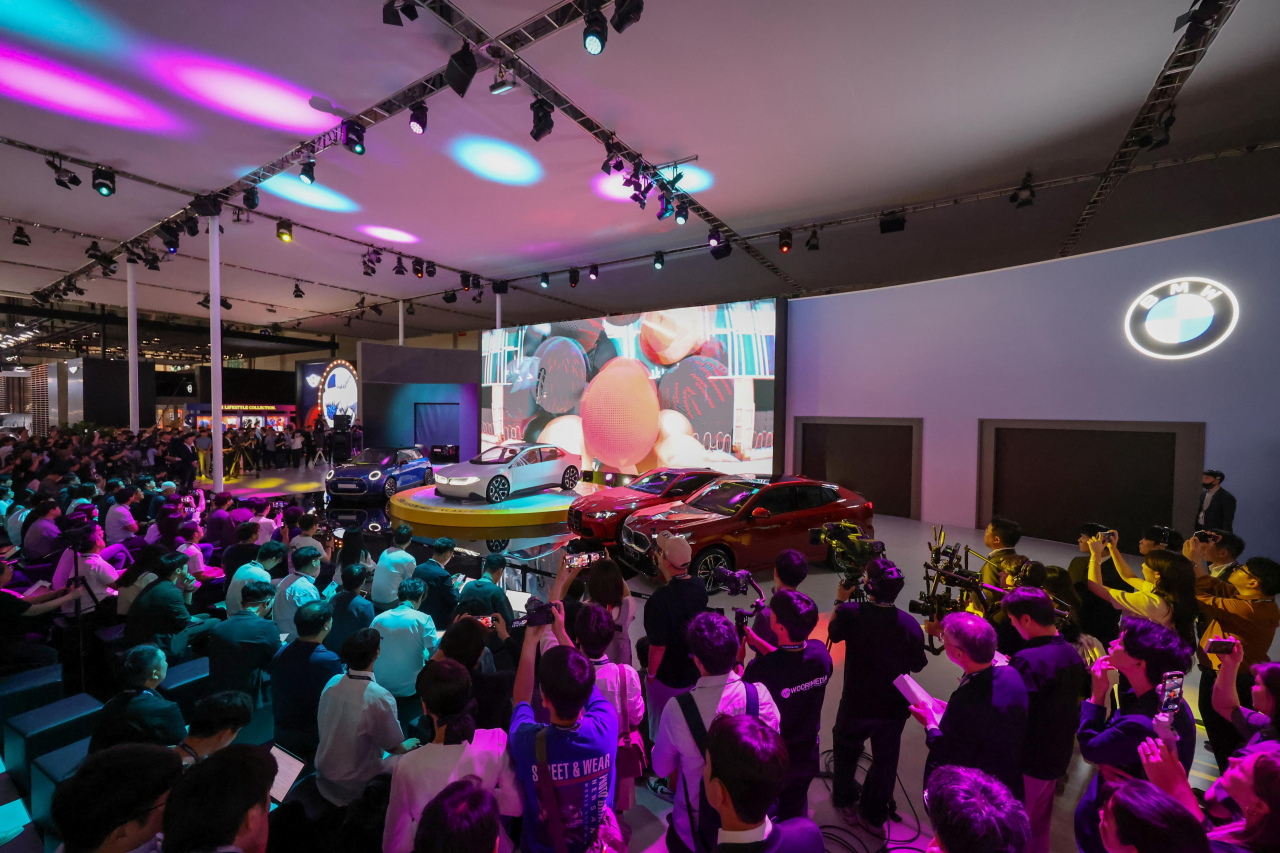[Reporter’s Notebook] Busan ‘International’ Mobility Show and BMW
BMW takes part in Korea’s second-largest auto exhibition as only auto importer
By Kan Hyeong-wooPublished : June 30, 2024 - 16:10

The 2024 Busan International Mobility Show began at Bexco in Korea’s second-largest southeastern port city on Thursday, just like any other global auto exhibition. The press day allowed numerous journalists to take a firsthand look at what the event had in store. However, despite the global intentions behind the title of the event, the exhibition venue had only one auto importer present: BMW Group Korea.
BMW Group Korea President Han Sang-yun noted in his presentation that the German automaker has taken part in this event for 14 years in a row including this year. He said active investment in Korea and fulfilling its social responsibilities are BMW’s purpose and role. Although there were no world premieres from the German automaker, it displayed a full array of 18 models including the BMW Vision Neue Klasse, a concept car that debuted at IAA Mobility in Munich in September last year.
The remaining overseas auto manufacturers in the country were nowhere to be seen at the event. Mercedes-Benz Korea, which sold 76,697 vehicles to become the second-biggest auto importer in the country last year, did not take part in the BIMO. The list of non-participating auto importers extends to Audi, Volvo, Tesla, Lexus, Porsche, Volkswagen and Toyota among the top 10 auto importers by sales volume. They all have been saying that they are committed to the Korean market.
Unlike the BIMO this year, Mercedes-Benz and Porsche set up large exhibition sites at the 2023 Seoul Mobility Show held at Kintex in Gyeonggi Province in April last year.
To be fair, the two German automakers’ explanations that they make flexible decisions on whether to participate in any auto exhibitions depending on the timing of a new car release or the need to carry on a promotional momentum make sense.
In fact, both companies have been actively and continuously making various social contributions through other means such as donations and support for the underprivileged. The same applies to the other auto importers.
The success of this year’s BIMO was dampened further by no-shows from General Motors Korea and KG Mobility, which both operate manufacturing plants here in the country.
According to industry officials who are familiar with the process, being an exhibitor at an auto show costs a fortune. So none of the aforementioned auto brands are obliged to take part in Busan’s biannual auto event. Despite the seemingly coldhearted yet logically understandable call to not be a part of the 2024 BIMO, it would have offered an important opportunity not just for Busan residents but also for people living in the nearby North and South Gyeongsang Provinces, who take up about 30 percent of all new car purchases in Korea.
As per usual, this year’s BIMO was headlined by Hyundai Motor Group’s three brands: Hyundai Motor Company, Kia and Genesis. They took up almost 50 percent of the exhibition space with the largest number of cars on display spearheaded by the launch of the Casper Electric. Their overwhelming presence combined with the lack of participation from auto importers and domestic auto manufacturers made the BIMO feel like it was a local event.
In order for the BIMO to become a true global auto event as the name strives for, more automakers should show up and walk the walk instead of just talking the talk.
-
Articles by Kan Hyeong-woo




![[Business Diplomacy] As Trump targets EVs, Hyundai-Kia shifts gears to hybrids](http://res.heraldm.com/phpwas/restmb_idxmake.php?idx=644&simg=/content/image/2024/07/30/20240730050592_0.jpg&u=20240730155845)





![[KH Explains] Hanwha scion steps into spotlight amid pending succession](http://res.heraldm.com/phpwas/restmb_idxmake.php?idx=644&simg=/content/image/2024/07/30/20240730050625_0.jpg&u=20240731124143)








